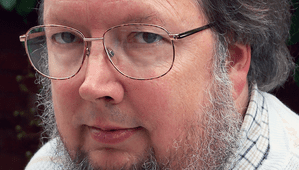Writing About Religion

Hey Boston area readers, I’ll be at the Boisi Center at Boston College on Thursday evening for a panel discussion on writing about religion in a polarized age. I will be joined by actual smart people, including my longtime correspondent Mark Oppenheimer of The New York Times; I’m the comic relief, I think. Come if you can, or watch us livestreamed. Follow the link and it will give you the info.
As I’m thinking about the remarks I’ll make, I’d like to throw open the comments box to ask you readers what you think about religion writing in a polarized age. What qualities does the best religion writing you see nowadays have? What’s wrong with religion writing today? How could we who write about religion do a better job?
I’ll say a couple of brief things, but hold the substance of my comments for the meeting. First, I think that the Internet has been terrific for religion writing, because it makes available far more perspectives.
I think that the tremendous job the media did on the Catholic abuse scandal wouldn’t have been possible without the Internet. Nor would it have been possible for Catholics, both conservative and liberal, to offer their own analyses that either contradicted or amplified what we were seeing in the mainstream media.
Plus, I think it is a good thing that it’s harder for authorities within a religion, church, or tradition to control the narrative. I’m a conservative, as you know, but I treasure the fact that I can read both a conservative and liberal take on certain issues. Though an ex-Catholic, I am still rather unlikely to agree with the National Catholic Reporter on any Catholic issue, but I still value its perspective as a reality check on what my preferred sources are saying.
So that’s one good thing about religion writing in a polarized age: if you care to find alternative perspectives to inform your own, it’s not hard.
The hardest thing, I think, is trying to see the world through the eyes of someone whose religious perspective is different from your own. An example: a constant complaint in my own comments threads from pro-gay rights readers is that Christians have learned to ignore Levitical teachings, so why can’t they ignore New Testament writing against homosexuality? This is simply ignorant. It’s ignorant of how Christians reason, and the historical relationship between Scripture and interpretation. No Christian reads the Bible as a how-to book in the sense these critics mean. To be sure, there are many variations of authoritative interpretation, but virtually no Christian reads the Bible as these readers think we do.
I don’t say that these readers are arguing in bad faith (though they might be). What I say is that they typically don’t take the time or expend the effort to understand Christians, or traditional Christians, the way Christians (or traditional Christians) understand themselves. The fundamental divide between religious liberals and religious conservatives, I think, is over the way we relate to religious truth. Is it something we can change to fit our own needs and culture, or must we change ourselves, despite our needs and culture, to fit it? There’s not a simple answer for this (in fact, I think most people do both things at different times), but the way one answers this question has a lot to do with the task one faces in trying to understand how the other side thinks.
Here’s a variation on that point: Prior to the 1960s, liberal and conservative Catholics could dispute each other, but they used the same authoritative texts and teachings on which to build their cases. That’s not really true anymore. It’s far more difficult for both sides to understand each other, because they understand the faith according to different paradigms. I think this is generally true of all people nowadays.
Finally, one challenge we who write about religion (and who read about religion) face is that we downplay religious difference. Sometimes, religions really cannot be reconciled at the doctrinal level. There is a strong tendency, and not always a bad tendency, to try to find common ground to reduce conflict. But this is a bad thing when we fail to recognize that some things are not possible to agree on. When I was a Catholic, I thought that Catholicism and Orthodoxy were pretty close, doctrinally. Now that I’m Orthodox, I see that I was wrong. My error came in part because I wanted to see the similarities, not the differences, but also because I simply wasn’t as familiar with the differences as I am now that I am Orthodox. I would still love for the Catholic and Orthodox churches to cooperate more, but I don’t hold out much hope for any re-establishment of communion, simply because the differences between the churches are more profound than many Western Christians see.
So, look, that’s enough for now. What do you think about my original questions?
(The image above are the ever-critical eyes of my pal Terry Mattingly, who is constantly thinking about these questions, and writing about them at the website Get Religion. Check it out.)
Subscribe for as little as $5/mo to start commenting on Rod’s blog.